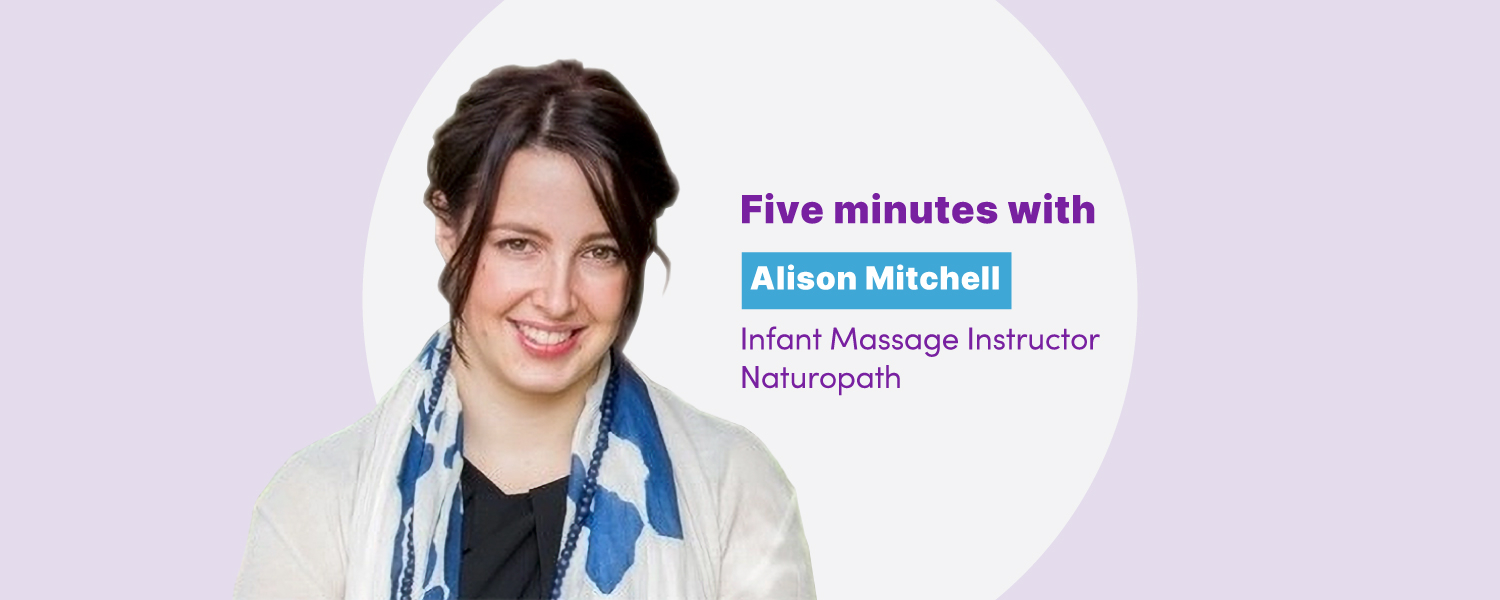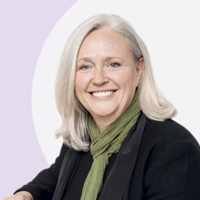
In 5 minutes with ...
Alison discusses sleep deprivation during COVID-19 and shares some clinical insights.
Alison's details ...
Naturopath, Infant Massage Instructor.
B.App.Sc (Nat Stud). Post Grad Dip (Nat). Cert Pregnancy Massage.
How long have you been in practice? I’ve been in practice for about 12 years. I graduated in 2008 and slowly built up my business through word of mouth and through my website which I built in 2011.
What have you found in your practitioner experience helps people with sleeping issues, particularly in light of SARS-CoV-2 virus? People are having varying changes in their sleep habits at this time. Some of my patients report sleeping more during the day or being able to have sleep-ins, but some are experiencing disrupted sleep, usually because they are feeling an increase in anxiety and worries. It’s also understandable for children’s sleep patterns to be disrupted as they are taken out of their routine, and will usually pick up on their parents' stresses.
I have noticed that during this time people are watching more TV. Apparently Netflix has received almost 16 million more subscriptions recently! This can affect our melatonin level through the exposure to blue light. I often recommend that my patients try to limit screen time 1 - 2 hours before bed time and to use blue light blocking glasses and apps on their phones and computers such as f.lux which can minimise the impact of the blue light by showing more red, yellow and orange hues.
The usual sleep hygiene recommendations are still good here too:
- try to get up at a consistent time and get some sunshine first thing
- try to avoid stimulating activities and blue light exposure right before bed
- alcohol can worsen sleep quality, so keep that in check during this time, and the same thing goes for caffeine
Getting enough activity throughout the day to accumulate sleep debt is important as well, so some exercise earlier in the day can be a good way to do this.
I love herbal medicine for sleep concerns and usually work with drop doses for sleep issues. I get my patients to start with taking the herbs at 60 minutes, and then 30 minutes and then right before bed time.
I will usually give a nutritional formula that contains the minerals magnesium, calcium and the amino acid glycine as its main components.
Can it affect your food choices for example? In regards to Covid-19, yes, I think there has been a big impact on people’s diet during this time. Some positive: people are having less take away lunches and cooking for themselves more, but there’s some negative: people are snacking more throughout the day and also leaning on comfort food and baking.
Sleep can have a big impact on your eating habits. If you are sleep deprived or even if you only get a portion less sleep than normal, you are more likely to eat more calories, make poorer food choices and you have a reduced ability to resist food temptations.
Can it affect your immunity? Yes, like many systems within our body our immunity also responds to our sleep-wake cycle and so disrupted sleep patterns can disrupt our immunity. We have a more active immune system when we are sleeping, with many of our immune cells peaking during rest periods. People who are sleep deprived have a greater susceptibility to catching infections but their antibody development is also weakened, making it harder for your body to fight the infection off, so you would be sicker for longer.
Are there any particular foods, herbs you’ve found particularly helpful? The current situation has caused a great deal of anxiety for many of my patients, and often with anxiety-based sleep issues it has caused onset insomnia. Herbs that I love to use for this may include some combination of valerian, lime flowers, skullcap, passionflower, mugwort or St John’s wort. I also like using kava kava. Typically taking a formulation like this leading up to sleep will help you get to sleep quicker, but you can take it again throughout the night if needed.
How is patient compliance in this current pandemic? During the initial stages I noticed a big drop in patient appointments, with many people being stood down from their jobs. After a few weeks this settled a little, and while I’m still comparatively quiet it is getting better again. Because a portion of my bookings are remedial massage, this took a bit of a chunk from the day as well.
I’ve notice that compliance with nutrition and eating has actually improved over the last few weeks as people are more likely to meal prep, cook from home and not be tempted by take away lunches. There have also been people committing to therapeutic diets or other diet changes that were previously too overwhelming for them, because they have more headspace for it at the moment.
Are you working more online, what tools do you find are helpful? Yes I am doing mostly online consults these days. I would have done about 30% online before but now I am requesting that all patients do online consults. I use cliniko so the new inbuilt telehealth consults makes it very easy. Before that when I used zoom I would schedule the video chat at the time of booking and send through an invite then, as well as a reminder along with their confirmation email. I find email templates and automations make my life a lot easier with this.
The main tools I need for this to work well are a good webcam and a separate light if I will be doing the consult in the evening. I set up two windows on my screen – one which is the video chat, and the other where I switch between patient notes, test results and vital.ly. Then I will send a summary of my recommendations and their prescription through at the end of the consult or later that day.
Thanks for your time Alison.






